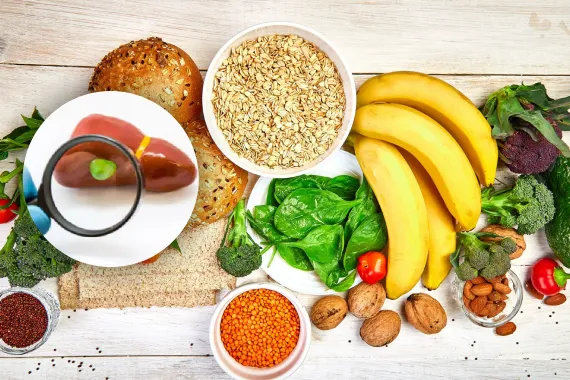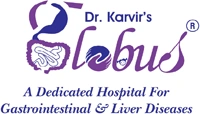Optimizing Your Diet After Gallbladder Removal
So, you've just had your gallbladder removed, or perhaps you're preparing for the surgery, and now you're wondering, "What should I eat?" That's a great question because your diet will play a crucial role in how well you recover and adapt after the surgery. The gall bladder might be a small organ, but it has a big job—storing bile, which helps in digesting fats. Without it, your body needs a little extra help, and that’s where a well-thought-out diet plan comes in.

What Is Gall Bladder Removal Surgery?
Gall bladder removal surgery, or cholecystectomy, is a common procedure where the gallbladder is surgically removed. This is typically done when there are issues like gallstones, inflammation, or other complications that can't be resolved with medication or less invasive treatments.
Why Is Gallbladder Removal Necessary?
Your gall bladder can cause a lot of pain and discomfort when it isn’t functioning correctly. Gallstones, for example, can block the flow of bile, leading to severe pain and even infection. Removal is often the best option to relieve symptoms and prevent further complications.
If you're experiencing severe discomfort post-surgery, it might be time to consult our Gastroenterology Experts at Globus Hospital.
The First 24 Hours After Surgery
What to Eat and What to Avoid: In the first 24 hours after your surgery, your body is in recovery mode. It's best to stick to clear liquids like water, broth, and herbal teas. Avoid any solid foods during this time to give your digestive system a break.
Importance of Hydration: Hydration is key. Drink plenty of water to help your body flush out the anesthesia and other medications from the surgery. It also aids in preventing constipation, which can be a common issue post-surgery.
The First Week Post-Surgery
Soft Foods and Easy-to-Digest Meals: As you move into the first week after surgery, you can start introducing soft, easy-to-digest foods. Think along the lines of applesauce, oatmeal, and mashed potatoes. Avoid high-fiber foods initially, as they can be hard on your system right after surgery.
Gradual Reintroduction of Solid Foods: Slowly reintroduce solid foods back into your diet. Start with small portions and avoid any foods that seem to cause discomfort. It’s a process of trial and error, so listen to your body.
Long-Term Dietary Adjustments After Gallbladder Removal
Why a Low-Fat Diet Is Crucial- Without a gallbladder, your body has a harder time processing large amounts of fat at once. Sticking to a low-fat diet can help you avoid digestive issues like diarrhea and bloating.
Examples of Low-Fat Foods- Opt for lean proteins like chicken, turkey, and fish. Incorporate plenty of fruits, vegetables, and whole grains. Use healthy fats like olive oil in moderation.
Importance of Fiber in Your Diet
High-Fiber Foods to Include: Fiber is your friend, especially now. It helps keep your digestive system moving smoothly. Include foods like brown rice, whole wheat bread, and fresh fruits and vegetables.
Balancing Fiber Intake: However, balance is key. Too much fiber too soon can cause bloating and gas. Start with small portions and gradually increase as your body adjusts.
Foods to Avoid After Gallbladder Removal
High-Fat and Greasy Foods: Steer clear of high-fat and greasy foods like fried items, full-fat dairy, and fatty cuts of meat. These can be particularly hard on your digestive system and may cause discomfort.
Spicy Foods Spicy foods can irritate your digestive system, leading to pain and other issues. It’s best to avoid them, especially in the early stages of recovery.
Caffeinated and Carbonated Beverages Both caffeine and carbonation can be tough on your stomach post-surgery. Stick to water, herbal teas, and other non-caffeinated, non-carbonated beverages.
Managing Digestive Issues After Surgery
Common Digestive Problems: It’s common to experience some digestive issues after gallbladder removal, such as bloating, gas, or diarrhea. These are usually temporary but can be uncomfortable.
How to Alleviate Bloating and Gas: To reduce bloating and gas, try eating smaller meals more frequently and avoid gas-producing foods like beans and certain vegetables (e.g., cabbage, cauliflower).
Coping with Diarrhea or Loose Stools: If diarrhea is an issue, focus on eating binding foods like bananas, rice, applesauce, and toast. Avoid dairy and very fatty foods as they can exacerbate the problem.
Importance of Staying Hydrated
How Much Water Should You Drink?: Aim to drink at least 8 glasses of water a day, but this can vary based on your activity level and individual needs. Listen to your body, and drink when you feel thirsty.
Best Hydration Practices: Sip water throughout the day rather than gulping down large amounts at once. This can help with absorption and prevent any discomfort.
Supplements That May Help
Probiotics: Probiotics can help balance your gut flora and aid digestion. You can take a supplement or eat probiotic-rich foods like yogurt and kefir.
Digestive Enzymes: Digestive enzymes can assist in breaking down fats and other nutrients, making them easier for your body to process without a gallbladder.
Vitamins and Minerals: After gallbladder removal, you might need to supplement certain vitamins, especially if your diet has changed significantly. Speak with your doctor about which ones are right for you.
Warning Signs to Watch For
While most people recover well after gallbladder removal, there are some warning signs to watch for, such as persistent pain, fever, or jaundice. These could indicate complications. Ensure you keep up with your follow-up visits to monitor your recovery and address any issues that may arise.
Recovering from gallbladder removal surgery involves making some dietary adjustments, but with the right plan, you can still enjoy a balanced and satisfying diet. Start slow, listen to your body, and make gradual changes that support your digestion and overall well-being. Remember, your journey to recovery is unique, and professional guidance can make a significant difference. Contact your nearest gastroenterologist today to get personalized advice and ensure you're on the best path to recovery.
Others Condition:
Bloating | Cancers of Stomach, Intestine & Liver | Constipation | Hirshsprung’s Disease | Gallstone | Dysphagia | Inflammatory Bowel Disease | Pancreatitis | SIBO | Barrett’s Esophagus | Blood in Stools / Vomitus | Celiac Disease | Diarrhea | Fatty Liver | Gerd | Irritable Bowel Syndrome | Piles



